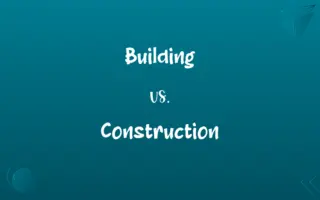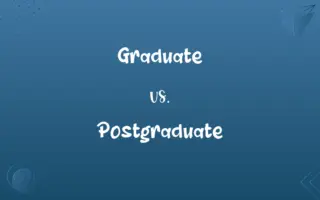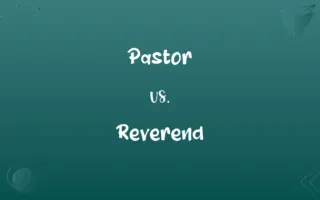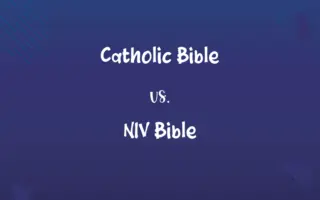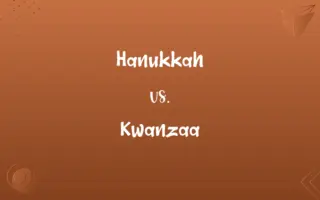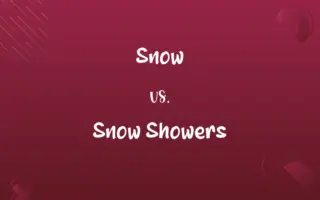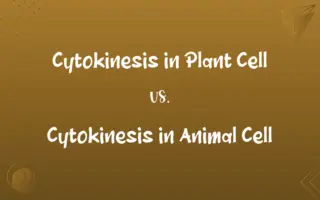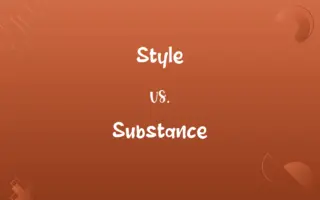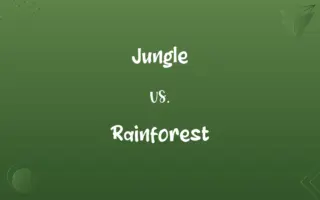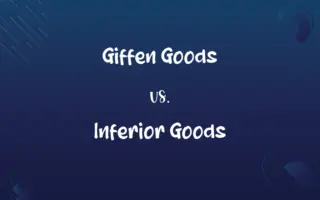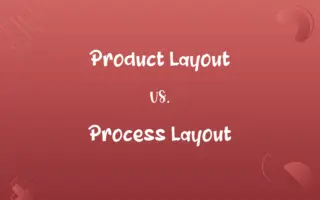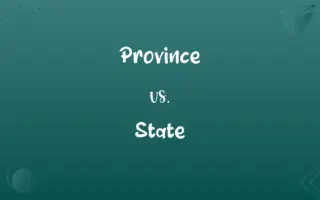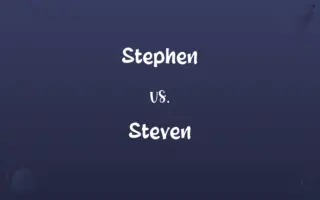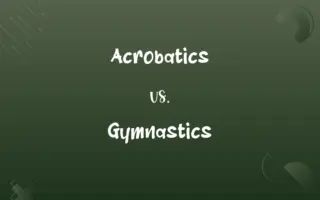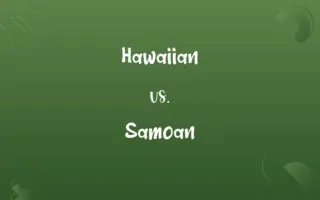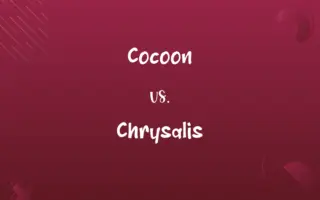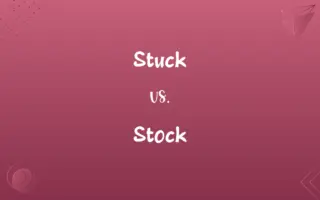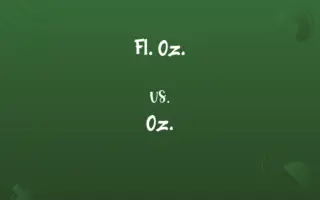Could vs. Would: Know the Difference

By Shumaila Saeed || Updated on December 25, 2023
"Could" is used to express possibility or past ability, while "would" is used to express a conditional or future intention.
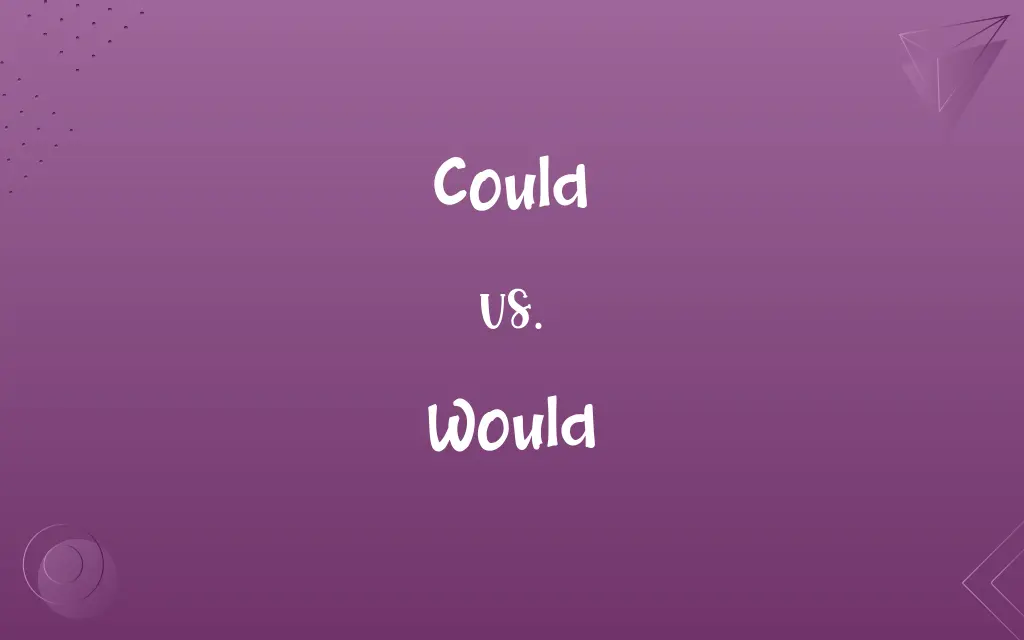
Key Differences
"Could" is the past tense of "can" and is used to indicate ability or possibility in the past, such as "I could swim when I was young." "Would" is the past tense of "will" and is used for hypothetical situations or future intentions seen from the past, like "I would travel more if I had the time."
Shumaila Saeed
Dec 07, 2023
In requests, "could" implies a polite question or suggestion, as in "Could you please open the window?" Meanwhile, "would" in requests implies a polite, often more formal, choice or preference, as in "Would you like some tea?"
Shumaila Saeed
Dec 07, 2023
"Could" also expresses a theoretical possibility or potential ability in the present or future, such as "You could try calling her." In contrast, "would" often refers to a repeated action in the past, similar to "used to," as in "When we were kids, we would play outside for hours."
Shumaila Saeed
Dec 07, 2023
In conditional sentences, "could" is used in the subordinate clause to suggest a possible outcome, like "If I had time, I could learn Spanish." "Would" in conditional sentences indicates the likely outcome of a hypothetical situation, as in "If I won the lottery, I would buy a house."
Shumaila Saeed
Dec 07, 2023
"Could" has a broader application, indicating a range of possibilities or abilities, while "would" is more specific, often tied to the intentions or wishes of the subject.
Shumaila Saeed
Dec 07, 2023
ADVERTISEMENT
Comparison Chart
Hypothetical Situations
Present or future possibility
Likely outcome in hypotheticals
Shumaila Saeed
Dec 07, 2023
Past Relevance
Past ability or theoretical possibility
Repeated past actions
Shumaila Saeed
Dec 07, 2023
ADVERTISEMENT
Could and Would Definitions
ADVERTISEMENT
Could
Used as a past subjunctive (contrary to fact).
I think he could do it if he really wanted to.
I wish I could fly!
Shumaila Saeed
Oct 19, 2023
Would
Used to form the "anterior future", or "future in the past", indicating a futurity relative to a past time.
On my first day at University, I met the woman who would become my wife.
Shumaila Saeed
Oct 19, 2023
Could
Used to politely ask for permission to do something.
Could I borrow your coat?
Shumaila Saeed
Oct 19, 2023
Would
Used to; was or were habitually accustomed to; indicating an action in the past that happened repeatedly or commonly.
When we were younger, we would cycle out to the beach most summer Sundays.
Shumaila Saeed
Oct 19, 2023
Could
Used to politely ask for someone else to do something.
Could you proofread this email?
Shumaila Saeed
Oct 19, 2023
Would
Was or were determined to; indicating someone's insistence upon doing something.
I asked her to stay in with me, but she would go out.
Shumaila Saeed
Oct 19, 2023
Could
Used to show the possibility that something might happen.
We could rearrange the time if you like.
Shumaila Saeed
Oct 19, 2023
Would
Could naturally have been expected to (given the tendencies of someone's character etc.).
He denied it, but then he would, wouldn't he?
Shumaila Saeed
Oct 19, 2023
Could
Used to suggest something.
You could try adding more salt to the soup.
Shumaila Saeed
Oct 19, 2023
Would
(archaic) Used with ellipsis of the infinitive verb, or postponement to a relative clause, in various senses.
Shumaila Saeed
Oct 19, 2023
Could
Something that could happen, or could be the case, under different circumstances; a potentiality.
Shumaila Saeed
Oct 19, 2023
Could
Was, should be, or would be, able, capable, or susceptible. Used as an auxiliary, in the past tense or in the conditional present.
Shumaila Saeed
Oct 19, 2023
Would
A modal verb, the subjunctive of will; usually followed by a bare infinitive.
Shumaila Saeed
Oct 19, 2023
Would
Used as the auxiliary of the simple conditional modality, indicating a state or action that is conditional on another.
If I won the lottery, I would give half the money to charity.
Shumaila Saeed
Oct 19, 2023
Would
Without explicit condition, or with loose or vague implied condition, indicating a hypothetical or imagined state or action.
I would love to come and visit.
Look at that yummy cake! I would eat that all up!
Shumaila Saeed
Oct 19, 2023
Would
Suggesting conditionality or potentiality in order to express a sense of politeness, tentativeness, indirectness, hesitancy, uncertainty, etc.
I would ask you all to sit down.
I would imagine that they have already left.
Shumaila Saeed
Oct 19, 2023
Would
Used to express what the speaker would do in another person's situation, as a means of giving a suggestion or recommendation.
It's disgraceful the way that they've treated you. I would write and complain.
Shumaila Saeed
Oct 19, 2023
Would
Used to express the speaker's belief or assumption.
He's very security-conscious, so he would have remembered to lock the door.
They would be arriving in London round about now.
Shumaila Saeed
Oct 19, 2023
Would
Used interrogatively to express a polite request; are (you) willing to …?
Would you pass the salt, please?
Shumaila Saeed
Oct 19, 2023
Would
Might wish (+ verb in past subjunctive); often used in the first person (with or without that) in the sense of "if only".
Shumaila Saeed
Oct 19, 2023
Would
Something that would happen, or would be the case, under different circumstances; a potentiality.
Shumaila Saeed
Oct 19, 2023
Would
Commonly used as an auxiliary verb, either in the past tense or in the conditional or optative present. See 2d & 3d Will.
Right as our Lord hath would.
Shumaila Saeed
Oct 19, 2023
Repeatedly Asked Queries
What is the main use of "would"?
"Would" is mainly used for conditional or future intentions.
Shumaila Saeed
Dec 07, 2023
Are "could" and "would" interchangeable?
No, they have different uses and meanings.
Shumaila Saeed
Dec 07, 2023
Is "would" used in offers?
Yes, "would" is often used in polite offers or choices.
Shumaila Saeed
Dec 07, 2023
Is "would" formal in requests?
"Would" can be more formal in requests than "could".
Shumaila Saeed
Dec 07, 2023
Is "would" used for hypothetical situations?
Yes, "would" is used to express likely outcomes in hypotheticals.
Shumaila Saeed
Dec 07, 2023
How is "would" used in conditional sentences?
"Would" is used in the main clause of conditional sentences.
Shumaila Saeed
Dec 07, 2023
Does "could" imply a theoretical possibility?
Yes, "could" can imply a present or future possibility.
Shumaila Saeed
Dec 07, 2023
Can "could" be used for requests?
Yes, "could" is used for polite requests or suggestions.
Shumaila Saeed
Dec 07, 2023
Is "would" used for past habits?
Yes, "would" can describe repeated actions in the past.
Shumaila Saeed
Dec 07, 2023
Can "could" express conditional outcomes?
Yes, "could" is used in conditionals for possible outcomes.
Shumaila Saeed
Dec 07, 2023
Can "could" suggest future abilities?
Yes, "could" can suggest potential future abilities.
Shumaila Saeed
Dec 07, 2023
Can "would" express wishes?
Yes, "would" often expresses wishes or preferences.
Shumaila Saeed
Dec 07, 2023
Is "could" used in hypothetical questions?
Yes, "could" is often used in hypothetical or polite questions.
Shumaila Saeed
Dec 07, 2023
Does "would" imply a definite intention?
"Would" often suggests a more definite intention than "could".
Shumaila Saeed
Dec 07, 2023
Is "would" used for past reported speech?
Yes, "would" is often used in reported speech for future intentions.
Shumaila Saeed
Dec 07, 2023
Does "could" have a past tense form?
"Could" is already a past tense form of "can".
Shumaila Saeed
Dec 07, 2023
Can "could" be used for polite suggestions?
Yes, "could" is suitable for making polite suggestions.
Shumaila Saeed
Dec 07, 2023
Can "could" be used for ability in the present?
Yes, "could" can imply current ability in a hypothetical context.
Shumaila Saeed
Dec 07, 2023
Can "could" imply permission?
Yes, "could" can sometimes be used to ask for or grant permission.
Shumaila Saeed
Dec 07, 2023
Share this page
Link for your blog / website
HTML
Link to share via messenger
About Author
Written by
Shumaila SaeedShumaila Saeed, an expert content creator with 6 years of experience, specializes in distilling complex topics into easily digestible comparisons, shining a light on the nuances that both inform and educate readers with clarity and accuracy.
